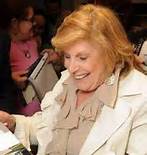Ruth Steinfeld is a board member at the Houston Holocaust Museum and president of the museum speaker’s bureau.
In a normal world, most 5-year-old girls play with dolls, learn how to become ladies and dream about what their lives will become. But on November 9, 1938, life for Ruth Steinfeld was by no means normal. The then-5-year-old girl watched helplessly as ax-toting Nazi soldiers smashed up her family’s home in Germany in a night known as Kristallnacht, or “Night of Broken Glass”. She could only watch in horror as the rampaging soldiers led her father and grandfather away — the last time she would see them alive. They were taken to the infamous Dachau Concentration Camp, where they and more than 30,000 others lost their lives. On Oct. 20, 1940, she and her remaining family were trucked to a train station and deported to Camp de Gurs, a concentration camp in the southwest of France near the Pyrenees mountains. But help arrived from an unlikely source in 1941, Steinfeld said. Pretending to be representatives of the Red Cross, a French group known as the Agency for the Rescue of Children whisked the girls away to Chateau du Masgelier, a medieval French castle that housed Holocaust victims. The girls were told to say they were Christian.
For the next six years, the girls traveled throughout France, living in other medieval castles and regular orphanages. For a while, they lived with a Christian family “who shared their meager rations with us, two strange girls,” she said. With the help of the Jewish Family Agency, the girls were taken to New York City where they cleaned homes and “adjusted to the new language and lifestyle. No one understood our past. And so began my ruthless denial of the past. I wanted to know more about my religion.”
After arriving in Houston in 1949, she met Larry Steinfeld, and the couple wed in 1954. They have three daughters.
Steinfeld pushed her past from her mind, but the memories flooded back in 1981 when she attended the first international gathering of Holocaust survivors in Israel. There, she learned that her parents, Anna and Alfred Krell, had been gassed to death upon their arrival at Auschwitz on Sept. 9, 1942. It was then, Steinfeld said, that her desire to ignore her past suddenly melted away. “I knew I had a purpose, to speak for the 1.5 million children who never had a chance,” she said. “I knew that my new sense of peace came from a sense of forgiving but never forgetting.”

